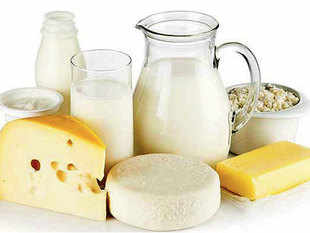 India, world’s largest milk producer, may see a loss of milk production by over 3 million tonnes (MT) per year by 2020 due to frequent climate change and it may also lead to a decline in per capita consumption, industry experts said.
India, world’s largest milk producer, may see a loss of milk production by over 3 million tonnes (MT) per year by 2020 due to frequent climate change and it may also lead to a decline in per capita consumption, industry experts said.
The country’s milk production has been steadily increasing with 2015-16 recording an output of 160 MT, the impact of rising temperatures, especially on cross-bred cows will make the task of meeting domestic demand difficult and could eventually lead to a decline in per capita consumption, industry experts said at the 45th Dairy Industry Conference, organised by Indian Dairy Association (West Zone) here.
“The dairy sector is likely to be affected both directly and indirectly by climate change. While stress to animals caused by changes in temperature-humidity index would directly affect milk production, indirect effects include feed and water availability being impacted by adverse climate events,” National Dairy Development Board (NDDB) Chairman Dilip Rath said.
Heat stress also impacts animal reproduction adversely as levels of above the acceptable levels can impact conception rates.
Research indicates that stress from heat can cause decline in milk yield in the range of 10 to 30 per cent in first lactation and 5-20 per cent and second and third lactation and both the heat waves and cold waves can cause short to long term cumulative heat effect on milk production in cattle and buffaloes, he said.
“As climate change is a challenge that impacts all of us, our dairy sector must not only evolve adaptation strategies but also help in mitigation by contributing to reduction in greenhouse gas emissions from the dairy sector,” he added.
Milk is India’s single largest agricultural commodity in value terms surpassing even the combined value of the two principal cereal crops and has helped million of rural households pursue livelihoods, Rath said, adding, “we need to proactively protect our milk producers from the adverse consequences of climate change.”
India is self-sufficient in milk and world’s largest milk producer accounting for about 18 per cent of the world’s milk production. As per market research reports, the value of the Indian market for milk and milk products are expected to grow at 15 per cent annually, Rath said.
The three-day conference will have 23 technical and commercial sessions wherein the scientists and industry experts will present their research and findings.
Nearly 180 exhibitors from India, Bulgaria, China, Denmark, Finland, France, Germany, Italy, Luthuania, Malaysia, Neterland, UK, USA and Thailand are showcasing their products, technologies and services.
Source: The Economic Times









